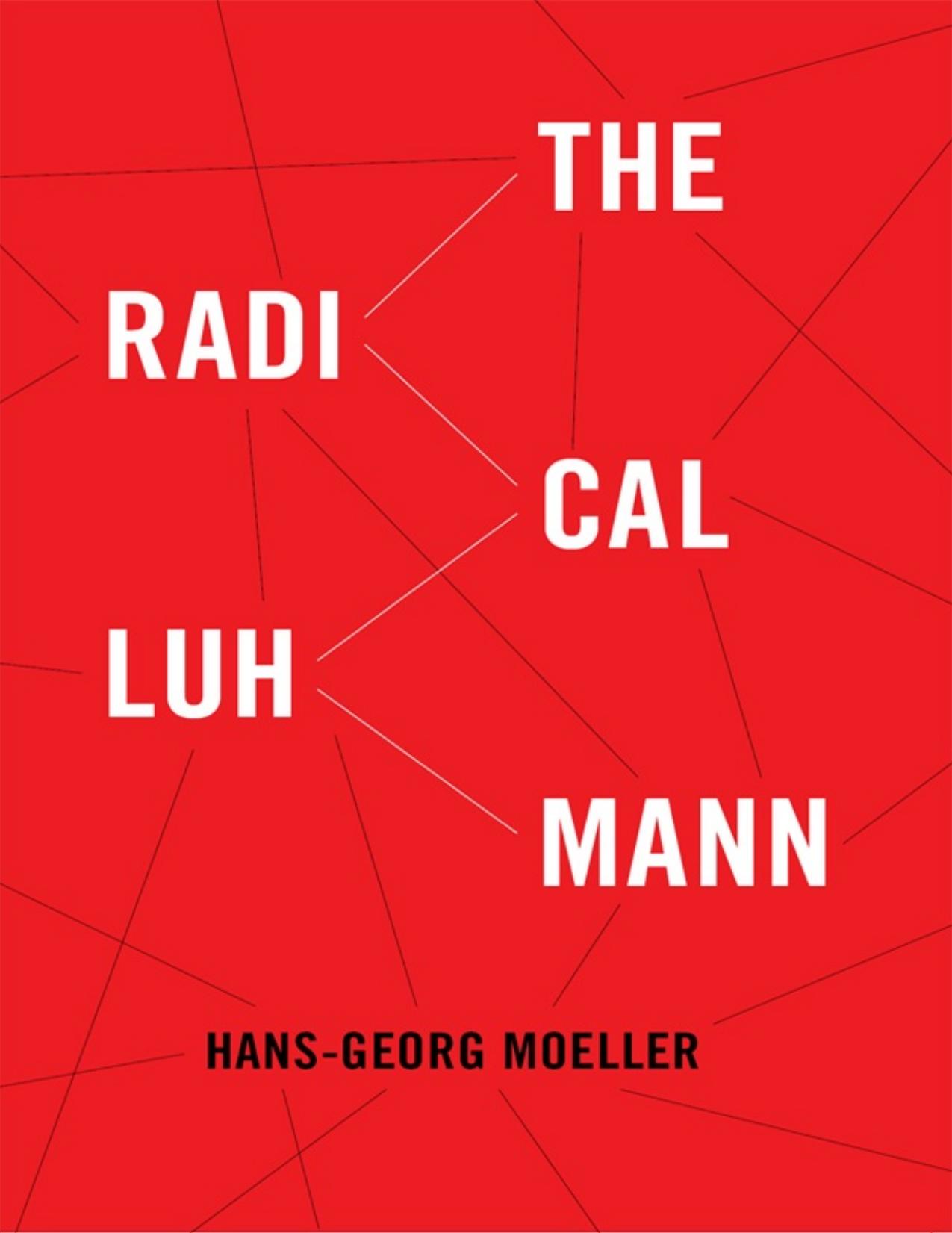The Radical Luhmann by Hans-Georg Moeller

Author:Hans-Georg Moeller
Format: epub, pdf
Tags: Philosophy/Political
Publisher: Perseus Books, LLC
Published: 2011-10-21T16:00:00+00:00
EIGHT
DEMOCRACY AS A UTOPIA
A DECONSTRUCTION OF POLITICS
While Luhmann did not believe that democracy exists in the sense of “rule of the people,” he did not deny that there is a mode of government in contemporary society that is named “democratic” and that this term usually refers to a “specific structural arrangement” of the political system.1 That is to say, for Luhmann, democracy is not a term that should be discarded. It indeed says something, just not what it actually means. While the idea of democracy seems quite unfit to describe the functioning of politics in today’s world, the term nevertheless signifies a specific way of doing politics. But what exactly does it signify, if not the rule of the people? What is, sociologically speaking, “actually existing democracy”? I suggest that Luhmann’s answer to this question can be divided into three parts: First, being a type of politics, democracy denotes a form of exercising power, or more precisely, of establishing “collectively binding decisions” in society. Second, and more specifically, it denotes a political structure that allows for a continual alternation between government and opposition and thus manages to provide the political system with a balance of stability and variety that has proven successful in the sense of maintaining systemic durability. Third, it denotes a symbolism that provides the political system with what it needs most in order to be able to fulfill its social function of establishing collectively binding decisions in a durable way, namely, it denotes legitimacy.
Political power, according to Luhmann, is the power to make collectively binding decisions. This power typically rests with the government. These decisions may concern anything in society, ranging from regulations on what to wear (on your head, for instance), to what is taught in schools, right up to a proposal to fly to the moon. Such decisions express a specific political will and are made by governments that are authorized to express and enforce this will. Such a definition of politics, including democratic politics, is not radical but rather commonsensical. However, in the context of social systems theory, and in connection with a theory of functional differentiation, it leads to some rather paradoxical conclusions, namely that political power is not very powerful and that political decisions do not decide much.
I discuss these two consequences by referring to two examples of political decision-making in areas that have been fairly relevant (not only) in current democracies, namely governmental regulations and warfare. The power to regulate public institutions—even if they function within other systems—rests with the political system. It can politically regulate universities and hospitals, the legal system, or even the economy by, for instance, supporting private banks or other companies. Nevertheless, at least under democratic conditions, the power to regulate simultaneously leads to the creation of other nonpolitical powers—by politically regulating the education system, the military, or the economy, these very systems are then empowered to function on their own terms. The exercise of political power is not a zero-sum game; it does not absorb all social power, but enforces a dynamic social power structure.
Download
This site does not store any files on its server. We only index and link to content provided by other sites. Please contact the content providers to delete copyright contents if any and email us, we'll remove relevant links or contents immediately.
The Secret History by Donna Tartt(19086)
The Social Justice Warrior Handbook by Lisa De Pasquale(12190)
Thirteen Reasons Why by Jay Asher(8909)
This Is How You Lose Her by Junot Diaz(6885)
Weapons of Math Destruction by Cathy O'Neil(6279)
Zero to One by Peter Thiel(5801)
Beartown by Fredrik Backman(5754)
The Myth of the Strong Leader by Archie Brown(5507)
The Fire Next Time by James Baldwin(5442)
How Democracies Die by Steven Levitsky & Daniel Ziblatt(5218)
Promise Me, Dad by Joe Biden(5153)
Stone's Rules by Roger Stone(5087)
A Higher Loyalty: Truth, Lies, and Leadership by James Comey(4960)
100 Deadly Skills by Clint Emerson(4924)
Rise and Kill First by Ronen Bergman(4788)
Secrecy World by Jake Bernstein(4752)
The David Icke Guide to the Global Conspiracy (and how to end it) by David Icke(4717)
The Farm by Tom Rob Smith(4507)
The Doomsday Machine by Daniel Ellsberg(4490)
